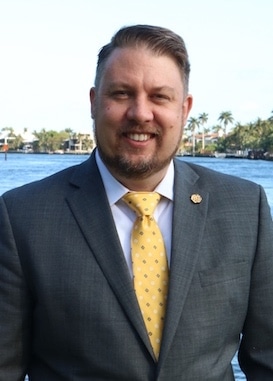George MacDonald is quoted as once saying “To be trusted is a greater compliment than being loved.” I don’t know if MacDonald is completely right on the matter but,
over the years, one thing that I have consistently noticed about humanity is that we seem to genuinely have trust issues.
We might consider why such a lack of trust pervades the world. I dare to say that the issue can be attributed to far more than crooked politicians, corrupt T.V. evangelists and traveling salesmen selling snake oil – although they surely haven’t helped. Even from the earliest tales of the origins of humanity we are told about “snakes” lying to us in ways that will cause our ultimate demise.
But it is not just legends or colloquial observations of distrust that convince us to proceed with skepticism. It is the reality of life that we experience. People deceive us intentionally. We are seldom really loyal to one another. We are mistreated. People steal from us. And the seemingly never-ending list of injustices that are committed against us goes on and on, almost indefinitely.
More than even this though, it appears to me that these experiences combined with the belief (or reality) that people are foundationally problematic has had an even worse effect on us long-term. Such combination often creates, through us, a perpetual cycle of inflicting hurt on others – even if unintentionally. We learn such behavior by being recipients of it and eventually, over time, we become that which we despise. Worse yet, many of us have become cynical about that fact that we are this way.
This general distrust has become commonplace. But what if it wasn’t? What if, even for a moment, we suspended how we feel about people and endangered ourselves emotionally enough to risk breaking the cycle? What if we worked toward reconciling with difficult people in our lives and committed ourselves to nondisposable relationships by uplifting one another?
Now I am not suggesting that we should ignore injustice or criminality because we simply shouldn’t. But what I am suggesting is that most of the distrust that we face on a day-to-day basis is fairly petty. It arises from unjustified assumptions, stereotypes, gossip and prejudices. And if we could simply find it in ourselves to give people a chance, to forgive when someone honestly makes a mistake, or misspeaks, or superficially hurts us, then I think we would more quickly approach the kind of world that we all would prefer.
We also might soon come to understand the underlying reasons that people become untrustworthy. And the reasons might surprise us. Usually people who hurt us often do so is because they are trapped in a hurt based reality formed from their context that they struggle to escape from.
In many ways this is why the message of Jesus Christ is so profound. Christ invites us to think not of ourselves first, but to take on the burdens of others to the point where they are released from them. And as we do this for others, Christ pledges to do the same for us – burden by burden freeing us from both the injustices of others and the punishment for our own trespasses.
As a result we may conclude that indeed, via Chesterton, “To be trusted” may be “a greater compliment than being loved” but – as we see in Jesus – rarely is trust ever derived without first being a product of love.





























